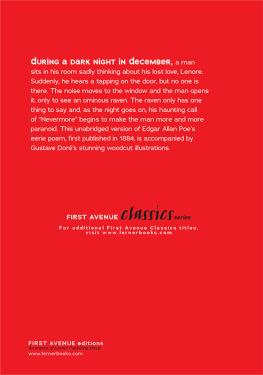This edition is published by PICKLE PARTNERS PUBLISHINGwww.picklepartnerspublishing.com
To join our mailing list for new titles or for issues with our books picklepublishing@gmail.com
Or on Facebook
Text originally published in 1860 under the same title.
Pickle Partners Publishing 2014, all rights reserved. No part of this publication may be reproduced, stored in a retrieval system or transmitted by any means, electrical, mechanical or otherwise without the written permission of the copyright holder.
Publishers Note
Although in most cases we have retained the Authors original spelling and grammar to authentically reproduce the work of the Author and the original intent of such material, some additional notes and clarifications have been added for the modern readers benefit.
We have also made every effort to include all maps and illustrations of the original edition the limitations of formatting do not allow of including larger maps, we will upload as many of these maps as possible.
REMINISCENCES OF AN OFFICER OF ZOUAVES.
TRANSLATED FROM THE FRENCH.
Foreword
( From the report of the U. S. Military Commission sent to Europe in 185556.
The Zouaves are all French; they are selected from among the old campaigners, for their fine physique and tried courage, and have certainly proved that they are, what their appearance would indicate, the most reckless, self-reliant, and complete infantry that Europe can produce.
With his graceful dress, soldierly bearing, and vigilant attitude, the Zouave at an outpost is the beau idal of a soldier.
They neglect no opportunity of adding to their personal comforts; if there is a stream in the vicinity, the party marching on picket is sure to be amply supplied with fishing-rods, &c.; if any thing is to be had, the Zouaves are quite certain to obtain it.
Their movements are the most light and graceful I have ever seen; the stride is long, but the foot seems scarcely to touch the ground, and the march is apparently made without effort or fatigue.
***
The Zouaves have, combined with all the activity and energy of the others, (the famous Chasseurs,) that solid ensemble, and reckless, dare-devil individuality, which would render them alike formidable, when attacking in mass, or in defending a position in the most desperate hand to hand encounter. Of all the troops that I have ever seen, I should esteem it the greatest honor to assist in defeating the Zouaves.
***
GEORGE B. McCLELLAN,
Captain 1st Cavalry.
PERSONAL REMINISCENCES.
INTRODUCTION.
T HE Reminiscences of an Officer of the 2 d Regiment of Zouaves are compiled from notes, taken daily and with much care, by one of the most eminent officers of the corps. {1}
The 2d regiment of Zouaves, from the day of its organization in Oran, up to that of this publication,which treats of it in the double point of view, of the historical and the picturesquehas scarcely for a moment ceased to find itself in the presence of an enemy.
In the southern portion of our African colonyin the Kabylia of the Babors,in the eastand, still more recently, in the greater Kabylia {2} this regiment has been invariably associated with every expedition, and almost every feat of arms of the last few years.
OF ALL THE SOLDIERS IN THE WORLD, THE ZOUAVES ARE THE FIRST AND BRAVEST, said the Marshal de St. Arnaud, on the eve of the battle of the Alma. These words have sown the seeds of a noble pride in the heart of every individual member of the corps.
There is a question which the non-professional reader may ask, and which we have often heard asked, ourselves: How is it that regiments, which are recruited of the same material which enters into the composition of the other regiments of our army, should often seem to possess a certain superiority over other corps? Why should they be considered among ourselves as corps dlite and by our enemies as among their most formidable opponents?
A reply to this double question may perhaps be found in a brief glance, at the organization, the method of recruiting, the esprit de corps , and the original formation of the regiments of Zouaves.
Shortly after the taking of Algiers, our government, wishing to avail itself, in the interests of our new colony, of the services which might be expected from some of the natives, who showed a disposition to enter into the ranks of our army, organized a battalion of infantry, of which the companies, though commanded by French officers, were almost entirely recruited from among the natives of the country. These new soldiers, whose oriental costume was preserved, took the name of Zouaves; a name given by the Turks to the native foot soldiers, whom the Dey of Algiers was in the habit of recruiting from one of the great tribes of the Kabylia.
This battalion soon proved to be extremely serviceable in the war of detachments carried on against the native tribes. And it was, therefore, decided to raise a new battalion, and to form the two into a regiment. The command of this new regiment was given to Colonel de Lamoricire, whose name soon became one of the most famous in our African army. {3} The natives of the country were still admitted to serve in the regiment; but the French element was already predominant.
In 1842, after the first few years of occupation, and in consequence of the important services rendered by these two battalions, chiefly during the campaigns of 1840 and 1841, the regiment was increased, and made to consist of three battalions, of nine companies each; one of which constituted the dept. It was at this epoch, that the native soldiers almost entirely disappeared from the regiment. To be admitted into its ranks was already an object of emulation among the best, the bravest, and the most vigorous soldiers of the African army. The uniform,the manner of life,the greater liberty, there enjoyed, than in the garrisons of France, or even of Algeria,-the certainty of being present wherever a musket shot was to be fired,the glory to be acquired,were, all of them, considerations well calculated to attract into our ranks the descendants of those Gauls, our forefathers; whose proud saying it was, that, Were the heavens themselves to fall, they would yet bear them up on the steel of their lances .
Besides the conditions of success resulting from the nature of their original organization, we should add, that it was subsequently decided, with much good sense, to give to the Zouaves, who were destined to fight as skirmishers, the same tactics and armament already adopted for the Chasseurs pied .
The system of recruiting, too, contributed not a little to the reputation which the Zouaves so rapidly acquired. We have already exposed some of the reasons which caused this arm to be sought in preference to others. We may add, that the soldiers of these regiments are usually admitted into them upon, their own application. Many of them are enfans de Paris , or of our other large cities. {4} Most of them, whose original entry into. The service had been as volunteers, or free substitutes, having already served one termare thus inured to the soldiers life, and thoroughly seasoned to the hardships which they gayly support, to the fatigues which they despise, and to the dangers of battle, of which they but make sport. They are proud of their uniform, which resembles that of no other corps; proud of their name, of an origin so singular and mysterious; proud of the daring acts of gallantry, with which they are constantly enriching the history of their corps; and happy in the freedom which is permitted them, whether in garrison or on the march. It is said that the Zouave is fond of wine; tis true; but that which he seeks in the flowing bowl, is the excitement of pleasure, and not that brutal oblivion of himself, induced by drunkenness. These regiments number in their ranks,disbanded officers, who, weary of an idle life, prefer to such the musket and the chchia ; {5} non-commissioned officers, who have served out a first term, but, who, glowing with a courage sometimes bordering upon rashness, cannot rest long before they again seek to win from the risks of battle, their stripes and an honorable position, or else a glorious death;ex-officers of the garde mobile ;discharged sailors, strong and broad-shouldered, who laugh at the cannon as at the storm;and finally, young men of good family, who wish to replace, by the red ribbon of the Legion of Honor,a ribbon bought with their best blood upon some field of battle,the fortune which they had squandered away in the streets of Paris.










